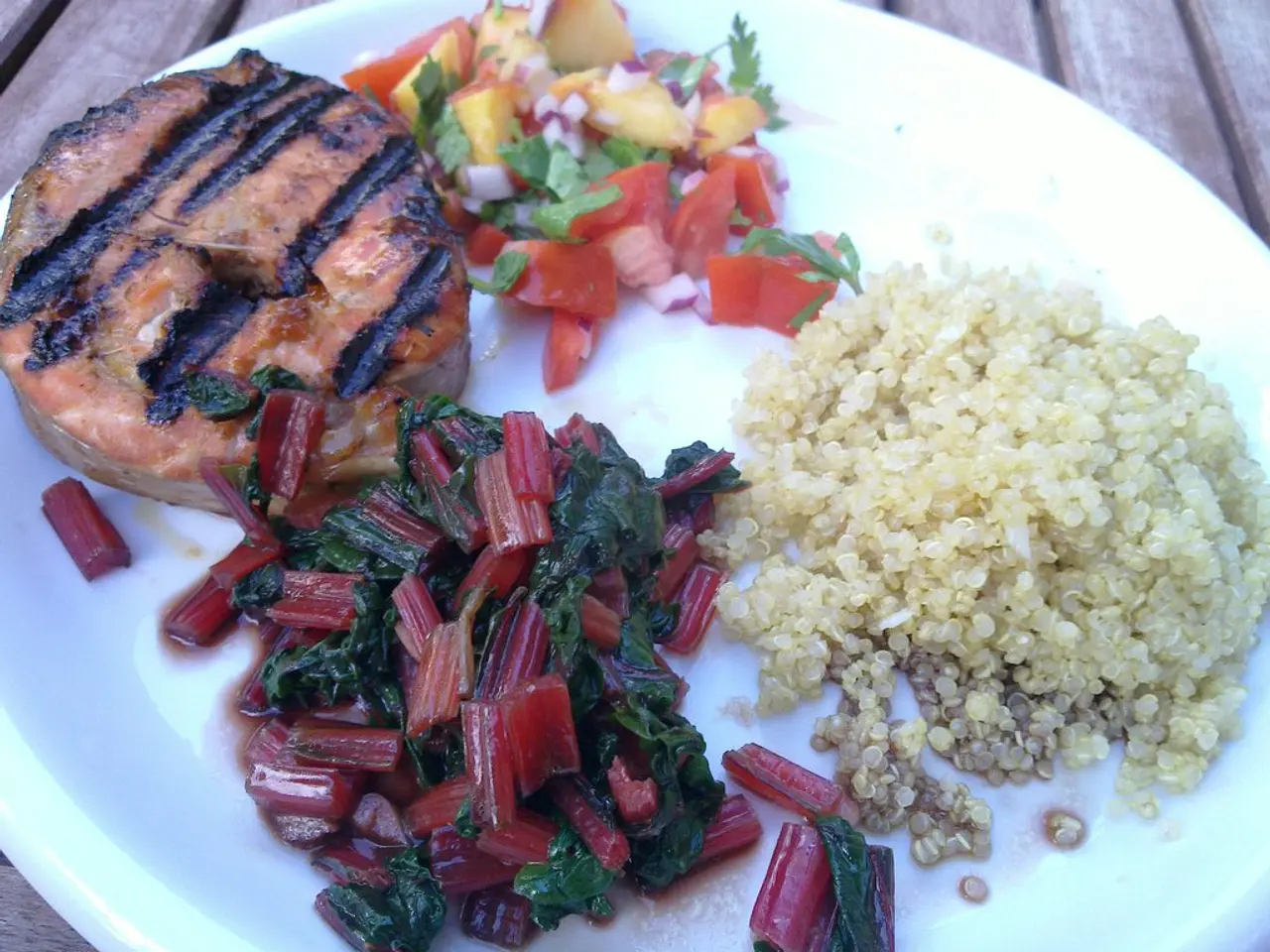Preparing Delicious Meals for a Single Individual
Living alone doesn't mean you have to rely on convenience food for every meal. Cooking for one can offer numerous benefits, from better health outcomes to cost savings. Here's a guide to help you make the most of cooking for yourself.
Preserving Perishables
Certain foods can stay fresh for a few days without refrigeration, such as celery and cabbage, if stored in a cool place. However, meat and dairy products, lettuce, and other greens don't last as long and should be consumed promptly. To extend their shelf life, consider filling a cooler with ice when purchasing perishable foods, or storing them in a cooler part of your home, like a cellar or a winter window sill.
Root vegetables like potatoes, yams, and onions can stay fresh for several weeks if stored in a cool, dry place above floor level.
The Advantages of Homemade Meals
Cooking for one leads to healthier, more economical, and better-controlled meals compared to the often less nutritious, more expensive, and larger-portion convenience foods.
Improved Health
Home-cooked meals typically contain fresher ingredients without hidden preservatives, unhealthy oils, or excess salt and sugar common in convenience foods. People who cook regularly have lower risks of obesity, cardiovascular disease, and type 2 diabetes.
Portion Control
When cooking for yourself, you decide exactly how much to prepare and eat, avoiding the oversized servings common in convenience or restaurant meals that can lead to overeating.
Cost Savings
Cooking at home allows you to stretch your grocery budget and reduce waste, making it more economical than frequently buying convenience or takeout foods.
Quality Ingredients
You can choose higher quality ingredients—fresh vegetables, lean meats, and preferred spices—ensuring nutrient-rich meals without unwanted additives.
Reduced Environmental Impact
Cooking what you need limits waste compared to convenience foods, and batch cooking or meal prepping saves energy by cooking multiple meals at once.
Personal Connection and Self-Care
Cooking can be a meditative activity fostering better connection with oneself, even when cooking alone, as well as potentially sharing with others.
Cooking in Small Spaces
Cooking for one doesn't require a full kitchen. Space-saving appliances like a slow cooker, steamer, toaster oven, air fryer, hot plate, rice cooker, or steamer can make cooking a breeze in small apartments or dorm rooms.
Quick and Easy Meals
Cooking for one doesn't have to mean spending hours in the kitchen. Quick meals can be prepared with minimal effort, and reinventing leftovers can create new meals, such as wrapping leftover chicken, rice, and veggies in a tortilla with cheese and salsa.
Empowerment and Enjoyment
Cooking for one can be empowering, improving mood and self-esteem. It also allows for personal meal preferences and flexibility in meal times. And remember, cooking for one doesn't have to mean eating alone; cooking with others can deepen relationships.
In summary, cooking for one is a smart, healthier, and more economical choice. By following these tips, you can enjoy nutritious, delicious meals tailored to your needs.
- With space-saving appliances like a slow cooker, steamer, or air fryer, cooking for one is possible even in small kitchens or apartments, offering an easy cooking solution in limited spaces.
- The food-and-drink choices you make, such as opting for higher quality ingredients and homemade meals, can be part of your education-and-self-development journey towards personal growth by fostering healthier lifestyle choices and better self-care.
- As part of your health-and-wellness routine, cooking for one can help with weight management, as home-cooked meals provide better portion control compared to convenience foods typically featuring oversized servings that may lead to overeating.




